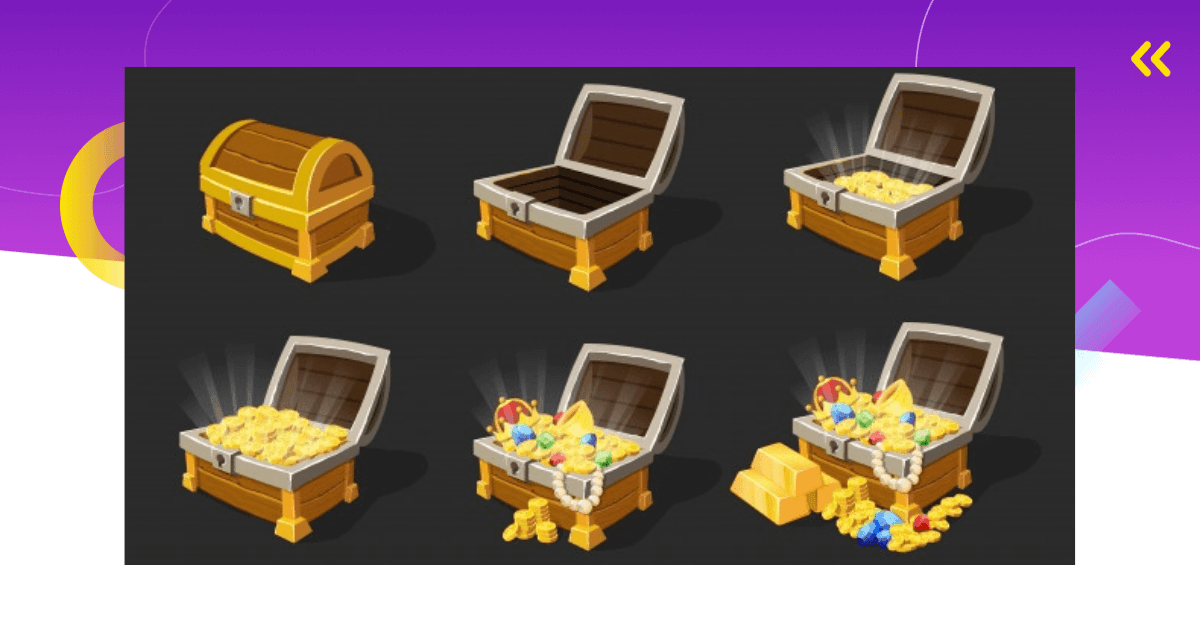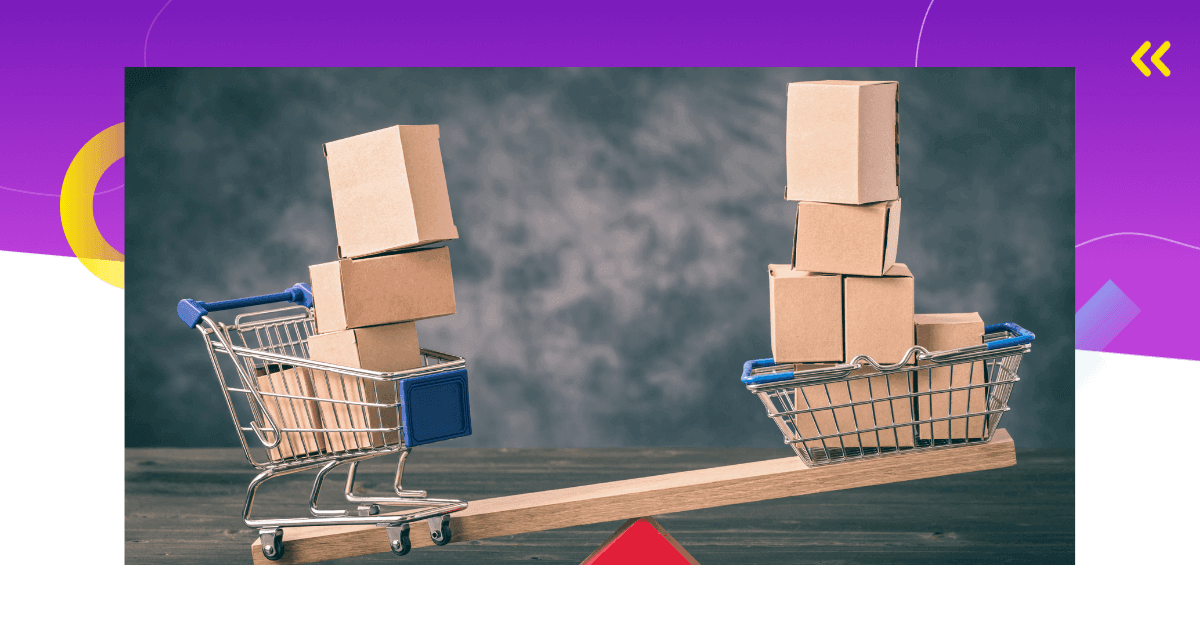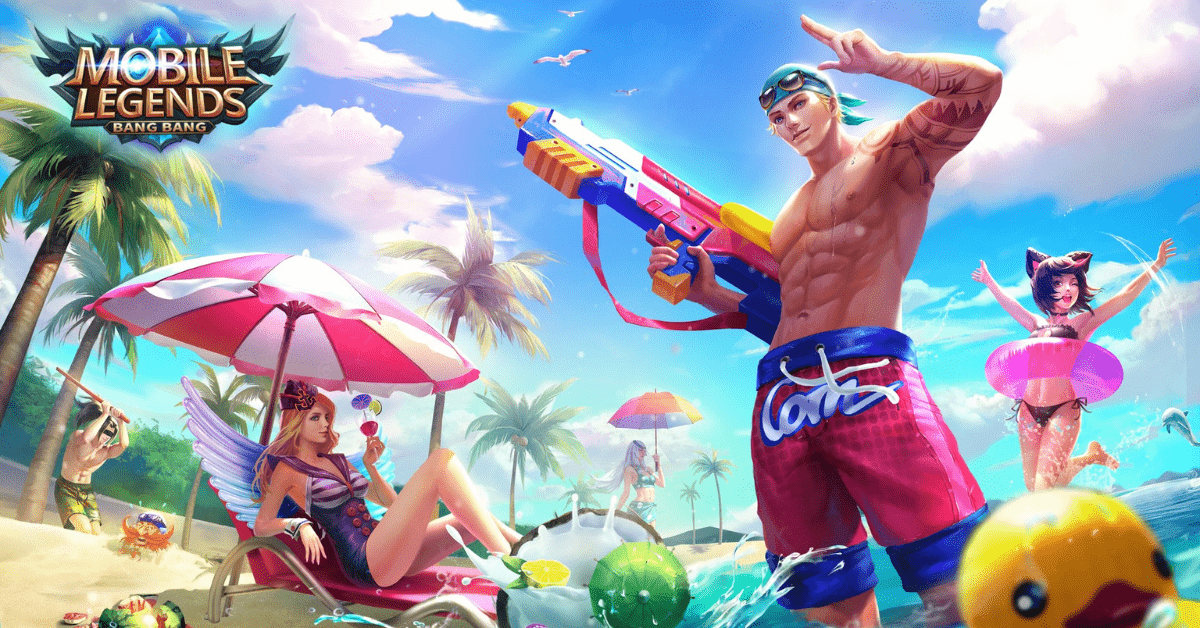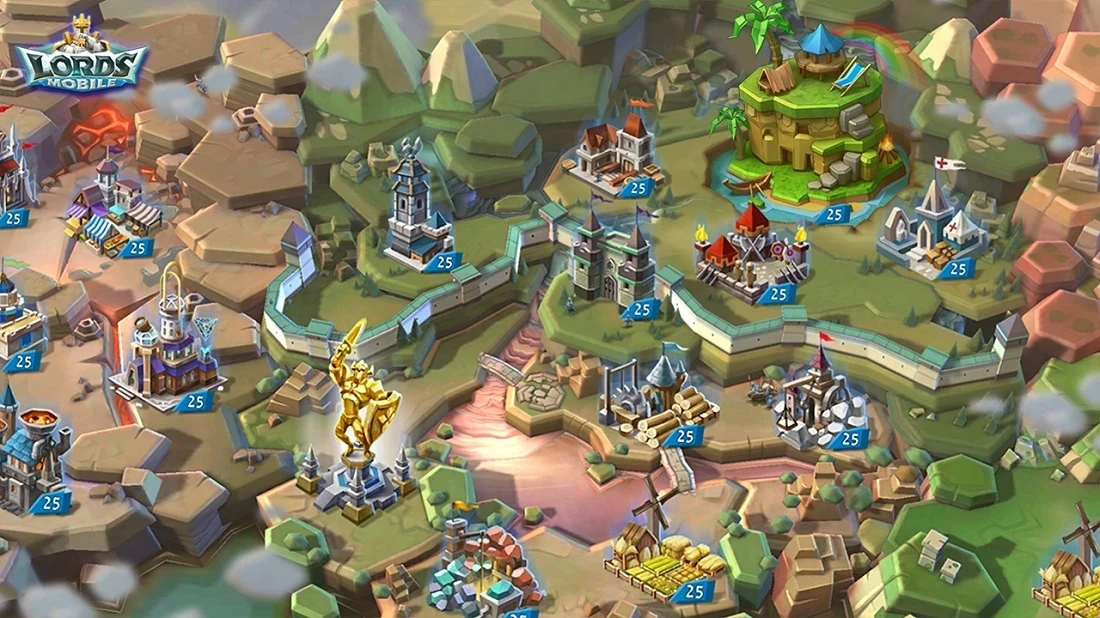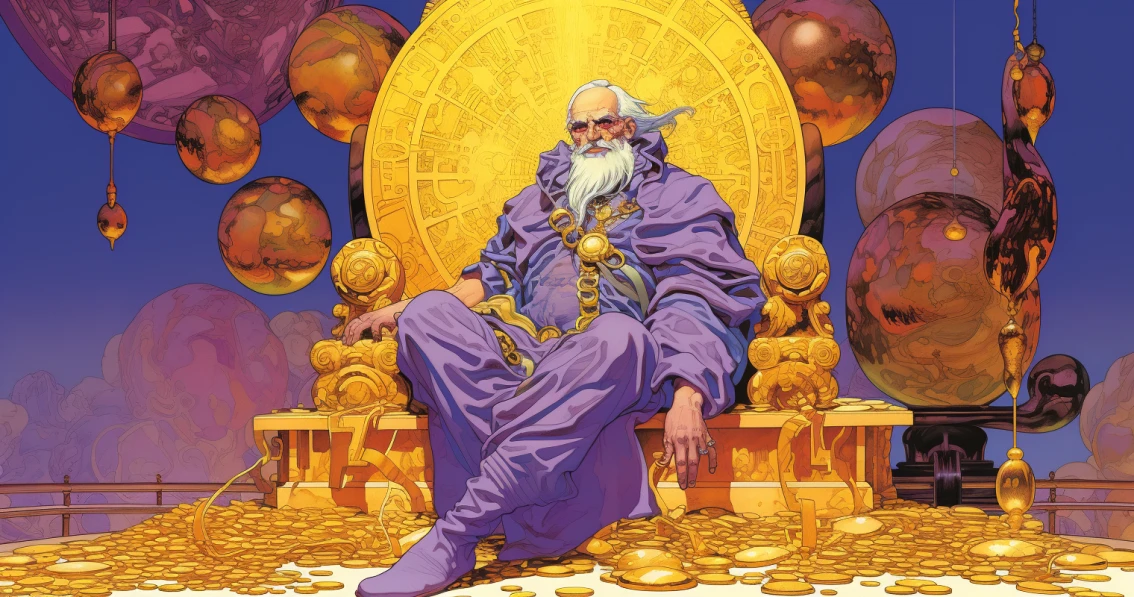Diamonds, gems, rubies, coins…Whatever they are, players constantly crave them, and game developers want to sell as many of them as possible. In this article, I analyze mobile game currencies.
Currencies are the pillar of in-app purchases and provide the basis for your overall monetization strategy. Furthermore, they drive mobile game revenues, affect user experiences, and much more.
I’m bringing you 12 different types of mobile game currencies, their main characteristics, and examples.
And yes, there really are that many of them!
1. Hard Currency
Most games that monetize with in-app purchases include this type of currency.
A hard currency is the game’s most valuable currency. It can be obtained from in-app purchases and through gameplay.
Having hard currency usually grants players a premium gameplay experience. With it, they can typically buy whatever it is they want from the game. If they can’t get something directly with it, they can usually exchange it for other types of currencies or resources.
You could say that hard currency has the power of real-life money.
And just like countries can’t just print out endless bills and hand them around, developers need to control the flow of hard currency in their games.
In other words, they need to limit the sources of hard currency.
Here’s how it’s usually done.
Players start the game with a positive hard currency balance. This way, they get a glimpse of the premium gameplay experience and learn about the value of the hard currency.
Once they get a taste of it, the generosity decreases.
At this point, players usually become collection-hungry. When they run out of hard currency, they will start looking for ways to get more of it.
Soon they find out they will have to work very hard to get hard currency through gameplay. For example, developers frequently give it out for special in-game achievements only (e.g., reaching milestone levels).
This leaves players with the most convenient way of obtaining hard currency – purchasing it.

Hard Currency in Hay Day
Hay Day’s economy consists of two currencies – diamonds and coins. Both can be purchased with actual money, but diamonds are more valuable than coins.
This makes diamonds the game’s hard currency.
When players have plenty of diamonds, they are able to enjoy the game to the fullest. With them, they can skip dreaded wait times but also buy all sorts of in-game resources.
Naturally, diamonds aren’t easy to get from the game. Players only get small amounts for achievements or level-ups.
That’s why the game’s store offers diamonds in six different packs in the store, as well as a part of special bundle deals.
2. Soft Currency
Soft currency comes with a lower value than hard currency.
Unlike hard currency, players shouldn’t have a difficult time earning soft currency. They should be able to earn it by playing, trading currencies, or simply – by waiting.
In a lot of cases, soft currency comes in the form of a monetary symbol. For example, coins or gold.
However, it’s not the form that matters. It’s the purpose.
A lot of successful games rely on a blend of hard and soft currency. This is also called dual economy or dual currency mechanism.
In this kind of economy, the role of soft currency is to separate the content for paying and non-paying players.
Let’s say you have a game where players can earn hard currency by making IAPs and reaching milestone levels. If this is the case, they should be able to get soft currency in a different way. For example, by completing gameplay tasks or watching rewarded video ads.

Soft Currency in Hay Day
Probably the best way to realize the value of the soft currency is to compare it to hard currency. These two types of mobile game currencies work great together.
For this reason, I’m going back to Hay Day’s example.
Here, the soft currency is coins. Players need them for one particular thing – buying items from the game’s special shop. This is completely separate from what the hard currency is for. Hence, their purposes don’t intertwine.
Unlike diamonds, players can get a whole lot of coins just for playing the game and completing everyday activities. For example, they earn coins every time they sell products from their farms.
Sure, players don’t need to bang their heads against the wall to get the soft currency. But if they want a pile of coins instantly, they always have the option to buy it.
3. Medium Currency
Afraid that your soft currency might be simply too soft?
By nature, soft currencies can be easily devalued, and this can negatively affect game economies. If this is bothering you, you might want to introduce a medium currency instead of a soft one.
Just like the name suggests, this currency is something in between soft and hard currency.
Medium currency can be obtained through gameplay. However, unlike the soft currency, it comes with usage or collection limitations.
This is commonly done in three different ways.
The first one is capping currency storage. For example, you can set a hard limit on how much currency players can store. Or you can make it more difficult to store currency after a certain point.
Another way of doing it is capping currency acquisition. In this approach, you limit the amount of currency players can obtain during a certain time frame. For example, once players reach a certain point during a day, you can completely stop it.
Third, you can put a limit on currency usage. For instance, you can determine that players need an X amount of currency before using it.

Medium Currency in Clash of Clans
Clash of Clans’ economy consists of two currencies: gems and gold.
At first glance, gold seems to be a typical soft currency. But if you analyze it properly, you will find out it’s actually a medium currency.
This is because the game is capping its storage. The storage capacity determines the maximum amount of gold players can own. If players want to upgrade their storage and store more gold, they need to progress through the game.
Evidently, this trick not only gives the currency more value but also encourages player engagement.
4. Premium Currency
In some games, players can buy only one currency by using real money.
This is what we call a premium currency.
If a premium currency exists in a game, it is also the game’s most important currency. With it, players can usually get anything they wish for.
Now, you may be wondering, “What is the difference between premium currency and hard currency?”
They are practically the same thing, but with one key difference.
It all depends if players can buy another currency besides that one. When there is hard currency, there is also a soft currency available to purchase with real money.
But when there is a premium currency, there is nothing else players can buy with actual money.
If you decide to introduce a premium currency to your game, you need to do it strategically. This currency needs to be irresistible and irreplaceable for players. For this reason, you shouldn’t be too generous with it, just like with hard currency.

Premium Currency in EverMerge
Even though EverMerge has two different mobile game currencies, only one can be bought with real money.
This is the game’s premium currency – rubies.
Players can use rubies to get rid of their main pain point in the game – wait times. With them, they can also buy different items and even purchase the game’s battle pass.
Since they are so valuable, the game is pretty stingy with giving them out. All of this makes EverMerge players eager to check out the game’s premium currency offer.
5. Energy Currency
A lot of mobile games include energy systems.
In these systems, the players’ sessions are limited by the amount of energy currency they have.
Sometimes, this currency is called lives, sometimes moves, and sometimes, well, energy.
Just like cars can’t run without energy, the players’ sessions can’t run without it either.
Once they are out of energy currency, players usually face wait times. This leaves them with a couple of possible choices:
- Wait for the energy to renew
- Buy energy currency
- Request energy currency from friends (if possible)
- Watch rewarded video ads (if possible)
As you can see, the energy system gives you plenty of options you can include in your game. It’s your task to find the ones that suit your game best.

Energy Currency in Homescapes
A lot of match-3 games come with an energy system, and Homescapes is one of them.
In this game, the energy currency is lives.
Players start the game with five lives. When they use all of them, a wait timer appears. Players can either wait for single refills (20 minutes) or for a full refill (1 hour and 40 minutes).
Of course, the players aren’t doomed to wait if they don’t want to.
The game gives them two options to skip wait times: requesting lives from friends or buying them with premium currency.
6. Social/PvP Currency
Are social features already a big deal in your game? Or would you like them to become more important?
If this is the case, you should consider including a social currency in your game.
By definition, social currency is the type of currency that can be acquired via some kind of social activity. For example, participating in multiplayer events, playing PvP mods, helping out guildmates, etc.
Therefore, if players want to earn this currency, they will need to become more social. If this happens, you can expect better engagement and retention rates.
Awesome, right?
Unfortunately, as great as this scenario sounds, social currency won’t work for just any game.
Social currency only makes sense if you have a pool of very engaged players. If players don’t even stick with your game, they will hardly care about your social currency.

Social/PvP Currency in Marvel Contest of Champions
This action/adventure game is all about superheroes fighting villains. To make things even more exciting, the game includes different PvP features.
If players engage with PvP features, they can earn Battle Chips – the game’s social/PvP currency.
Players don’t need this currency to play the basic version of the game. But if they want to unlock exclusive Arenas, they need to get competitive and earn themselves some Battle Chips.
7. Feature Currency
If your game allows players to earn the same currency from different activities, you should be careful about it.
Logically, players will choose those activities that will bring them more rewards. For example, they may decide to play your game’s daily missions instead of its regular mode.
No, this is not a disaster.
However, you want your players to engage with as many aspects of your game as possible. Not just one.
If you want to separate in-game features and their benefits, you can introduce a feature currency.
With this currency, you can:
- Direct players to play different modes
- Isolate a certain feature from the rest of the economy
- Set limits on specific features
All of this should help you make your game more engaging and diverse and keep your in-game economy in balance.

Feature Currency in Call of Duty: Mobile
Call of Duty: Mobile brings an interesting example of a feature currency. It is called lucky coins, and it is related to the game’s rewarded video ad feature.
Outside of this feature, lucky coins have zero value.
Every time players watch a rewarded video ad, they earn a coupon to draw from a lucky board. The most frequent rewards on the board are lucky coins.
If players draw lucky coins, they can exchange them in a special store. For example, for rifles, XP points, cosmetic items, etc. Unlike lucky coins alone, all these things have gameplay or cosmetic value.
8. Event Currency
Nowadays, almost every game on the market includes some kind of in-game event. In most cases, those are time-limited events.
Besides just including them, it’s also important to get the most out of them.
Monetization-wise, of course.
Events have the power to be a significant boost for your game’s economy outside basic gameplay. To achieve this, you need to encourage players to engage with your in-game events.
The best way to motivate them to do that is by rewarding them with currency. However, some players will have enough currency, so they won’t feel the need to participate in your events.
To avoid this, you can introduce special event currencies. They are a type of feature currency, and they are completely focused on time-limited events. These currencies are also time-limited, so when the event ends, they disappear as well.
Wondering what players can do with these mobile game currencies?
Well, anything you want them to. For example, you can allow players to buy a set of rewards with them.
All in all, if you want to add extra depth to your in-game events and make them self-sustainable, you should consider including event currencies into your game.

Event Currency in Simpsons: Tapped Out
Simpsons: Tapped Out regularly hosts special, time-limited events.
These events are a big deal for the game. So big that they come with their own event currencies, which then expire afterward.
These mobile game currencies are completely separate from the game’s standard economy (which, of course, includes donuts!).
While the events are live, players can spend event currencies to get exclusive prizes that vary from event to event (e.g., spinning a wheel, prize boxes, etc.).
Ever since its release in 2012, the game has held +100 events. This also means it has featured over a hundred different event currencies. Some of them were Santa Coins, Easter Eggs, Hearts, Party Hats, Toy Soldiers, and Wigs.
9. Guild Currency
Guild currency is another type of feature currency.
Yet, it’s worth a special mention.
Its name says it all – this currency is related to in-game communities. They are most often named guilds, but it also refers to all kinds of clans or alliances.
What separates guild currency from other feature currencies is the fact it is generated by groups of players.
Group earnings are more complex than individual earnings, so there is some balancing to do here.
For example, you can allow everyone in a guild to share and generate the currency, but only highly ranked players can spend it. Or you can make the currency completely individual, but that players can only generate it by collective efforts.
It all depends on how you want to form those communities. For example, if you want your game’s guilds to be more competitive or cooperative.

Guild Currency in Summoners War
This game’s economy consists of a few different currencies.
One of them is Glory Points – the game’s guild currency. Players can earn this currency by participating in guild-related activities. While the currency is completely individual, it is earned by joint effort.
Glory Points can be spent in one place only – in a special Glory Shop made just for this purpose. Here, players can purchase different bonuses and benefits that can help them progress.
Thanks to this currency, players are more likely to join guilds and participate in collective efforts. For the game, this means better engagement and retention rates, and consequently – more revenue.
10. VIP Currency
Think your game could benefit from a VIP system?
It works for a lot of games out there, and it might work for yours too.
In these games, players usually collect some kind of VIP currency (e.g., VIP points). In most cases, they can earn it from logging in to the game, progressing, or making purchases.
In most cases, the main way to really progress as a VIP player is to make purchases.
However, usually, games don’t offer VIP points alone for purchase. Instead, if players head to the in-game store and buy anything, they can get a certain amount of VIP currency.
Some players want to be VIPs badly, so this will be their main motive to make purchases. For others, VIP currency will be just a great side-benefit.

VIP Currency in Rise of Kingdoms
Rise of Kingdoms’ VIP currency is called VIP points, and it can get players the VIP treatment they desire.
Players can earn themselves VIP points in three different ways:
- By logging in daily and claiming free VIP chests
- For purchasing special VIP chests
- By buying different in-app purchase bundles
The more VIP points players collect, their VIP level increases. The VIP points can also be exchanged in a special VIP shop.
This shop is less expensive than the regular one. Plus, the higher the player’s VIP level is, the more offers they get to choose from.
As you can see, this game has multiple ways of encouraging players to engage with the VIP system.
11. Discard Currency
The discard currency is also known as dust, and for a good reason.
Players can obtain this currency only by destroying in-game items. When these items turn to dust, they get a whole new purpose and value.
Here are some common reasons why developers introduce the discard currency:
- Turning items into rewards that can be given out regularly
- Giving maxed out items a new purpose
- Making loot box drops less frustrating
- Helping players complete collections
- Supporting players in updating their inventory
- Giving players more confidence to spend
As you can see, the discard currency can bring a diverse set of benefits, both for players and game developers. Yet, it’s not something we frequently see in mobile games.

Discard Currency in Hearthstone
In this card game, players often pile up unwanted cards. For this reason, the game gives them the opportunity to turn them into dust.
The game’s discard currency is called Arcane Dust, and it allows players to produce new cards. This way, they can create decks they truly desire.
Without this currency, this process would be very difficult and time-consuming. With this feature, the game supports players in updating their inventory.
12. Informal Currency
People are always looking for ways to trick the system. This is in our blood.
The same can happen with mobile game currencies. Especially if they are not carefully thought out.
When this happens, informal currencies are created.
Informal currencies are different game assets that players successfully use as means of payment. The problem is, this is not what game developers had in mind when they created them.
This often happens in games that allow gifting and trading or when the hard currency has been devalued by some in-game problem.

Informal Currency in Party in My Dorm
The players of this roleplay chat game found some loopholes in its economy.
In this game, players are unable to trade currency. However, they can trade other in-game items.
Players figured out how to work the system and found alternative exchange mediums – chibis and bentos. These are the game’s shards and loot boxes, and they bring players more value than they should.
All of this created a grey economy with self-regulating prices.
Here’s what a Reddit user, JumpyRepresentative5, says about it, “You can’t message about it in-game (since the game wants to make money), but the cheapest way to buy bentos is direct from players, if you know people 🍱.”
As you can see, there is some real gangsta stuff going on in this game.
Why Do Mobile Games Have So Many Currencies?
Traditionally, mobile games had only two currencies – one hard currency and one soft currency. As you’ve seen in this article, now, mobile games can have dozen or more different currencies.
But why is that? Is that ultimately a good or a bad thing?
Let me answer some of these questions.
When a game has multiple currencies, its economy is easier to manage and the value of each currency is clearer and easier to control. Furthermore, by controlling the value and availability of each currency, game publishers can influence player behavior in the direction they desire.
Additional currencies also give more choices to the players and should make the game more interesting or complex. In other words, currencies can create unique gameplay, which is what can set apart your game from all the rest.
The main downside of having that many mobile game currencies is that new players might get confused and churn. For that reason, it’s essential to efficiently onboard new players and introduce currencies at a reasonable pace in order to avoid overwhelming players.
Furthermore, the overall user experience will depend on how well you’ve implemented all the currencies.
Mobile Game Currencies in Blockchain Games
Traditionally, currencies in games had no value in the real world. This changed with blockchain games that allowed players to exchange various in-game currencies for fiat money. We also call them play-to-earn games as players can earn money by playing.
While the blockchain gaming market is in its infancy and most blockchain games hadn’t yet come to mobile, such games propose an innovative approach to creating game economies worth exploring.
Because those games live on the blockchain, their currency is tokens, each of which has a specific purpose. Most commonly, play-to-earn games have two tokens, but can have more. For example, a utility used for buying game items (NFTs) and a governance token, which gives governing power to players who hold it.
Some examples of popular blockchain gaming tokens are AXS from Axie Infinity, TLM from Alien Worlds, and SAND from The Sandbox.
The most important thing about these tokens, and what makes them different from traditional mobile game currencies, is the fact that players fully own them and can trade them for other currencies.
Summing Up Mobile Game Currencies
Quite a large selection of mobile game currencies you can include in your game, right?
Don’t let this confuse you.
Remember, what’s most important is that your mobile game currencies make sense for your game and that you carefully balance them out.
Want to read more in-depth articles about mobile games? Stay updated and subscribe to our newsletter!
